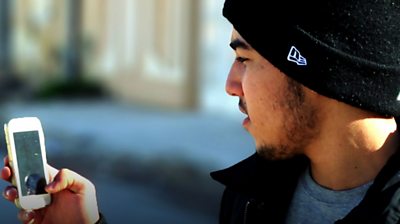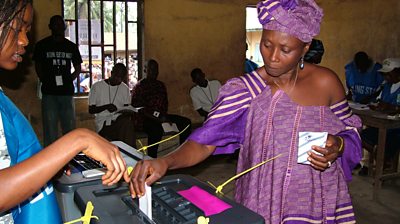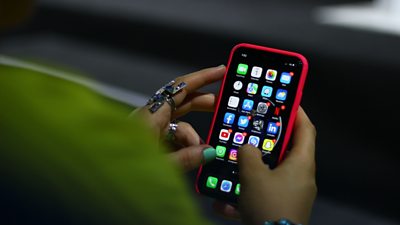Information disorder, distrust and division are on the rise, and technology is evolving at lightning speed - leaving people unsure of what, or whom they can trust. Our digital and media literacy work supports people to access, understand, navigate and engage critically with media, information and digital technology.
It is a critical component of our work to and tackle information disorder.
We conduct research to better understand media ecosystems, how people interact with information - including what influences them and what drives trust - and factors that may make them vulnerable to mis- and disinformation.
We use these insights to help us develop contextualised work, including media content and training which helps people to navigate information more safely and responsibly. This includes to build individual and societal resilience to common disinformation narratives or manipulation techniques.
We strengthen the capacity of local media partners so they are more aware of these issues, can support audiences on digital and media literacy and improve their own digital safety.

In North Africa, we have been piloting the scale-up of to build individual and societal resilience to manipulative disinformation. Working in partnership with a University of Cambridge team, we first in the run-up to the 2022 Tunisian elections. Following this, and in partnership with UNDP, we are now working on digital and media literacy and prebunking in Libya through our El Kul social media platform. We are doing research to understand the most common and harmful disinformation narratives in Libya, developing prebunking content suitable to the Libya context and creating and disseminating broader digital and media literacy media content.
In Afghanistan, our Afghan Support Project has been providing digital safety and digital media literacy training for over 120 media professionals, including a significant number of women journalists, from media organisations across the country. The training has covered online safety, digital hygiene, journalist safety and protecting the safety of vulnerable groups - including women and girls - when undertaking journalism. To further support Afghan civil society, we have used a âtraining of trainersâ approach, including work with the Afghan Womenâs Educational Centre and other service organisations, who can then share this training and assistance with others.
In Somalia, with European Commission funding, we are using both radio programmes and social media content to support critical thinking about information consumption among Somali audiences. They project is also strengthening the capacity of local Somali media organisations to undertake digital and media literacy work themselves.

In Sierra Leone, we have one of the country's most followed Facebook pages (approximately 560,000 followers). In the run-up to the 2023 national elections, we trained journalists, election management bodies and young social media influencers to support fact-checking and responsible use of social media. And we produced digital content to support the digital and media literacy of audiences and encourage the responsible use of social media around the elections. The content included tips on critical thinking, online safety and how to spot mis- and disinformation, and also warned followers of the legal implications of sharing other peopleâs unverified posts. In addition to sharing through , we also worked with popular social media personalities to help amplify the content.
In Bangladesh, where we have been working on conflict mitigation in Rohingya and host communities in Cox's Bazar, we worked directly with young people from host communities to support their digital and media literacy, and to encourage them to peacefully address conflict. We involved young people in the training design, with topics covering issues such as how to stay safe online and how to identify mis- and disinformation. Participants were supported to produce their own news bulletins related to their learning on debunking mis- and disinformation, which they then shared with other people in their community.
In Ethiopia, we produced content to help build audience resilience to harmful hate speech and disinformation narratives in local media. After conducting formative research to understand audience needs, we developed a podcast series, covering topics such as how to verify information and identify disinformation and hate speech. We also created a Facebook video series about digital safety, using 'Betty', a character based on a female superhero mobile phone. The project also included capacity strengthening with local journalists and media organisations to support more conflict-sensitive reporting.
In Zambia, as part of an election integrity project, we partnered with (the commercial arm of , the continentâs leading fact-checking organisation) and produced and shared a content package, including radio PSAs, social media posts and billboards, aimed at improving the media literacy of audiences and encouraging them to verify information before sharing it.
